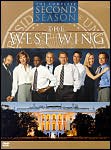Wired Magazine has a sorta brilliant, far-reaching article on the creator of BitTorrent, Bram Cohen.
It’s sorta brilliant because it’s the normal groveling Wired interview, but there are about four or five choice quotations that anyone working in any area of content creation/distribution/consumption[?] should at least read.
And Bram Cohen does not have an agenda, just tech smarts. Others will do the same or worse/better (depending on your politics).
Choice bits:
- One example of how the world has already changed: Gary Lerhaupt, a graduate student in computer science at Stanford, became fascinated with Outfoxed, the documentary critical of Fox News, and thought more people should see it. So he convinced the film’s producer to let him put a chunk of it on his Web site for free, as a 500-Mbyte torrent. Within two months, nearly 1,500 people downloaded it. That’s almost 750 gigs of traffic, a heck of a wallop. But to get the ball rolling, Lerhaupt’s site needed to serve up only 5 gigs. After that, the peers took over and hosted it themselves. His bill for that bandwidth? $4. There are drinks at Starbucks that cost more. “It’s amazing – I’m a movie distributor,” he says. “If I had my own content, I’d be a TV station.”
- Eric Garland, CEO of the P2P analysis firm BigChampagne, says, “the real work isn’t acquisition. It’s good, reliable filtering. We’ll have more video than we’ll know what to do with. A next-gen broadcaster will say, ‘Look, there are 2,500 shows out there, but here are the few that you’re really going to like.’ We’ll be willing to pay someone to hold back the tide.”
- After hobnobbing with “content people” from the record and movie industries, [Bram Cohen] realized that “the content people have no clue. I mean, no clue. The cost of bandwidth is going down to nothing. And the size of hard drives is getting so big, and they’re so cheap, that pretty soon you’ll have every song you own on one hard drive. The content distribution industry is going to evaporate.” Cohen said as much at the conference’s panel discussion on file-sharing. The audience sat in a stunned silence, their mouths agape at Cohen’s audacity.
THIS is why the BitTorrent effect matters. Because it is a glitch in the Matrix, a disturbance in the Force.
What BitTorrent began will be continued/forked by others and so on.
Again, like Napster, the genie is out of the bottle.
Business models have changed. Get over it/get on with it.
Why BitTorrent is effective – and a protocol that I could not write in a zillion years – it’s claim to fame is that it allow faster downloads of stuff. To MPAA etc, that means faster pirating.
OK.
But as Cohen himself admits in the interview, the overall capability of folks to get access to stuff and store it is increasing at an astonishing rate. BitTorrent may be a good protocol, but when everyone has a 1 terabyte hard drive and a DS3 coming into the home, is the efficiency of BitTorrent necessary?
THAT’s why BitTorrent really doesn’t matter (in the LONG run).
Short run, it’s the [promise of]/[evil bastard] of Napster for large honkin’ files, which include films.
Long run – We’ll all be able to do this good/nasty stuff easily – much like a browser enable the delivery (and possible [gasp!!] storage/redelivery of same). BitTorrent shows us the potential of the future; it is not the future.
As Dylan sang, the times they are a changin’…

 Well, last weekend I was a total sofa spud, and – over the course of the weekend – watched the entire first season of The West Wing.
Well, last weekend I was a total sofa spud, and – over the course of the weekend – watched the entire first season of The West Wing.